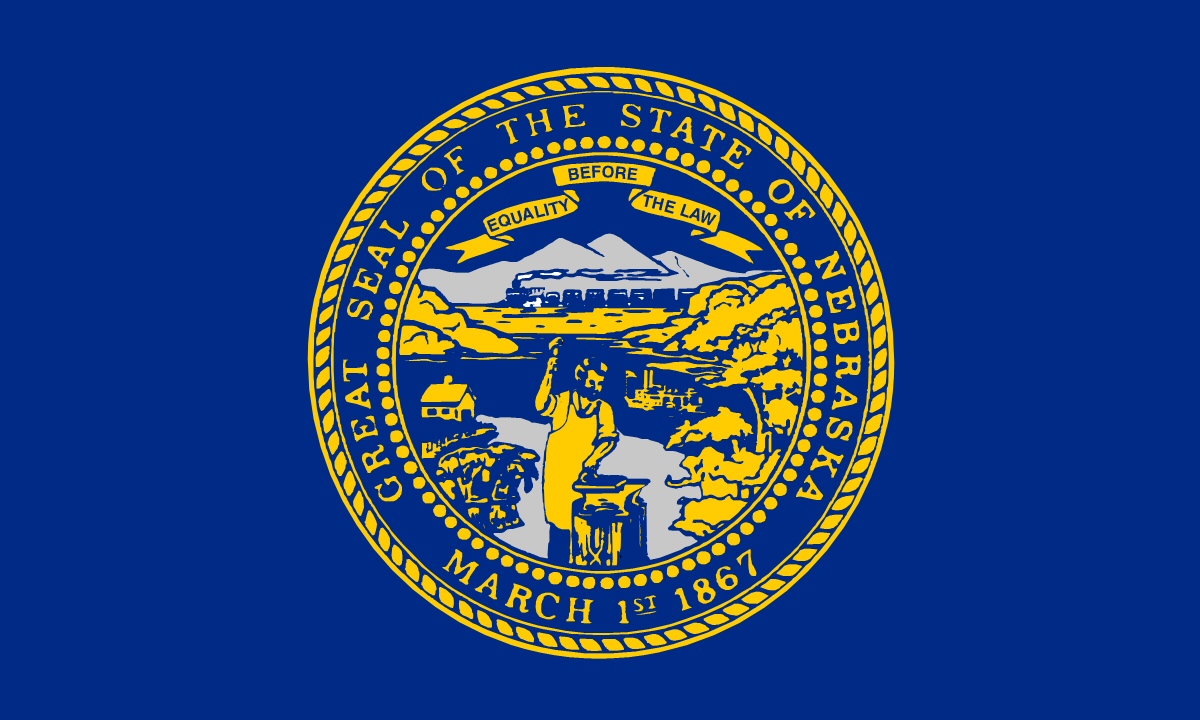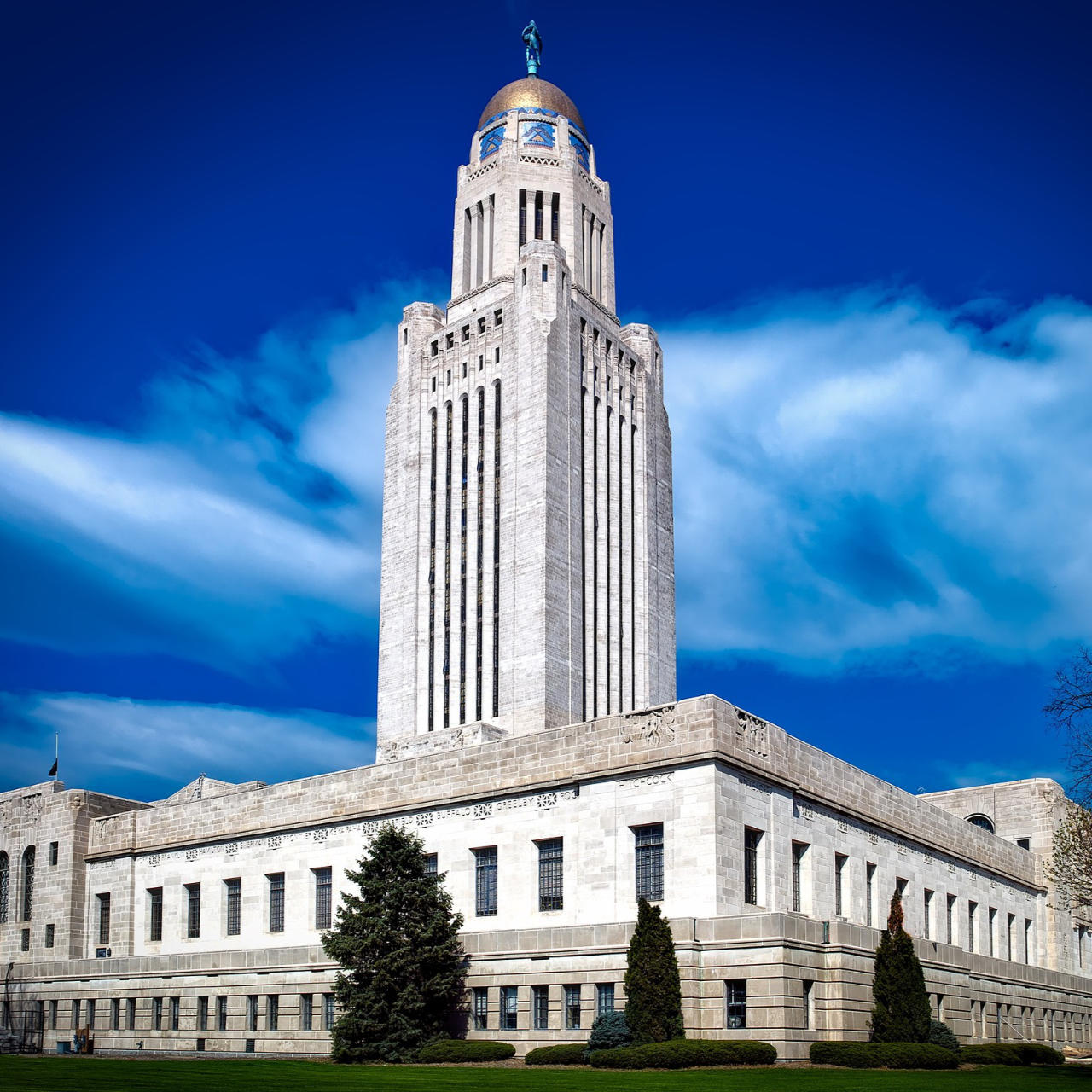State of Nebraska Short-Term Rental Regulations
Short-term rental regulations vary depending on the location and may include zoning laws, occupancy and safety standards, taxation, licensing, and insurance requirements review our guides for more information specific to your city.
Reviewed by Karolyn Hutson
Last updated September 23, 2023

Overview of Nebraska Short-Term Rental Regulations
Information is maintained by the community to provide helpful insights and links to local regulations, HostScouts does not provide legal or investment advice.
Nebraska attracts over 6 million visitors annually, injecting billions into the local economy. Unique attractions like the Henry Doorly Zoo and College World Series in Omaha, sandhill crane migration on the Platte River, Huskers college sports, and urban escapes in Lincoln draw many. For property owners, short-term rentals provide attractive income amid this tourism demand. However, hosts must navigate Nebraska's state laws and local ordinances governing vacation rentals. This guide provides a comprehensive overview of licensing, taxes, safety standards, insurance rules, and other requirements across Nebraska. Use it to run a lawful and successful STR.
Defining Short-term Rentals in Nebraska
Nebraska Statute §19-4601 legally defines short-term rentals and limits local oversight, providing consistency for hosts across the state.
What Qualifies as a Short-term Rental in Nebraska?
Nebraska defines short-term rentals as any residential property rented for a period of 30 consecutive days or less. This covers typical vacation home and room rentals.
Short-term Rental vs. Long Term Leases
Rentals exceeding 30 days are residential leases subject to landlord-tenant laws. Under 30 days is short-term lodging, regulated as commercial activity.
Common Terminology
Listings may be described as vacation rentals, short-term lets, Airbnb's, homestays or others. But under 30 days is considered a short-term rental across Nebraska.
Starting a Short-term Rental in Nebraska
Launching a new short-term rental business in Nebraska involves key steps like evaluating local zoning, determining tax obligations, and obtaining any required permits.
Reviewing Zoning and HOA Regulations
Ensure short-term rentals are permitted under zoning for the property's specific neighborhood. Also, check HOA bylaws for any rental restrictions before listing.
Registering for State Sales Tax
Nebraska requires hosts to collect and remit state sales tax on short-term rental revenue. Complete the Nebraska Tax Application to register.
Researching Local Permitting
Some cities like Omaha require hosts to register short-term rentals and obtain a permit or license before listing properties online. Check requirements.
Evaluating Business Plans and Budgets
Carefully project income potential and factor in expenses like insurance, licensing fees, taxes, cleaning, furnishings, and utilities to gauge return on investment.
Setting Rates and Listing Your Property
Browse comparable area listings to set competitive but profitable nightly rates. Highlight your unique amenities and style as you market across booking platforms.
State-Level Short-term Rental Laws in Nebraska
In addition to defining short-term rentals, Nebraska state statutes also limit local oversight and taxation powers over STRs under LB58, signed into law in 2021.
Limits on Local Regulations
Per state law, municipalities cannot ban short-term rentals or restrict them differently than other residential properties. Some common sense regulations are permitted.
Allowable Local Regulations
Cities can enforce ordinances covering zoning, noise, parking, nuisance, and health, safety, sanitation, and traffic codes. Reasonable permitting is also allowed.
Prohibited Local Regulations
Nebraska statutes prohibit cities from enacting STR bans or cumbersome regulations that improperly infringe on property rights beyond what is imposed on other housing.
State Authority on Short-term Rental Taxes
Under state law, only the Nebraska Department of Revenue can tax STRs. Local occupancy or lodging taxes cannot be imposed without specific state legislative approval.
Safety and Legal Standards for Nebraska STRs
Short-term rentals in Nebraska must comply with various state and local codes to operate legally.
State Public Health and Life Safety Codes
Rentals must meet Nebraska public health codes for water quality, wastewater disposal, sanitation, and communicable disease control as overseen by the Department of Health and Human Services.
Fire Codes and Emergency Preparedness
State fire codes impose safety standards like smoke detectors, fire extinguishers, address markings, emergency access, and prohibitions on outdoor recreational fires in some areas.
Building, Electrical and Construction Codes
Construction permits and inspections help ensure short-term rentals meet Nebraska building codes for health, safety, and structural integrity.
Swimming Pool, Spa and Hot Tub Regulations
Rentals with pools, spas, or hot tubs must comply with special state safety standards for barriers, lighting, ventilation, signage, and more.
Local Regulations on Nebraska Short-term Rentals
In accordance with state law, local jurisdictions have limited but important authority to regulate short-term rentals through reasonable permitting and codes.
Nebraska Cities Requiring STR Permits
Popular tourist areas like Omaha require hosts to register and obtain local short-term rental permits. Licensing helps maintain safety and neighbor relations.
Reasonable Zoning Enforcement
According to state law, cities can prohibit STRs in certain residential zones but must allow them in areas where other commercial lodging is permitted.
Parking, Noise and Nuisance Ordinances
Local regulation of issues like parking, noise, trash, parties, and density provides an important means to protect neighborhood character.
Permitting Band Problematic Operators
Municipalities can refuse permits to problematic owners and revoke permits from STRs with repeat safety or neighbor issues.
Taxes on Short-term Rentals in Nebraska
Hosts should factor applicable federal, state, and local taxes into their STR business plans and budgets. Relevant taxes include:
State Sales Tax Collection
Hosts must collect and remit the 5.5% Nebraska sales tax on all bookings under 30 days. This applies to room rates, cleaning fees, and other rental charges.
Reporting and Remitting Requirements
Hosts must report short-term rental taxable sales and remit collected sales tax to the Nebraska Department of Revenue monthly or quarterly.
Rental Income Taxes
Gross rental revenue is subject to federal income taxes. Nebraska income taxes also apply if annual earnings exceed state filing thresholds.
Tax Penalties
Non-payment or underpayment of lodging taxes owed can result in penalties of up to 25% of taxes due, plus interest charges and fines from the Department of Revenue.
Insurance Considerations for Nebraska STRs
Evaluating insurance needs is an important but often overlooked aspect of launching a Nebraska short-term rental. Key factors for hosts to consider include:
Reviewing Existing Homeowner’s Insurance
Most standard homeowner’s insurance policies exclude short-term rentals. Hosts should carefully review coverage or consult an agent.
Short-term Rental-Specific Policies
Specialized STR insurance provides vital liability coverage, property damage protection, loss of income, and more than typical policies may lack.
Navigating Nebraska's state laws and local requirements takes diligence but puts hosts on solid legal footing. Do your homework before listing any properties, understand tax obligations, and secure proper insurance to allow your Nebraska STR to thrive. Use this guide as a roadmap to maximize success and avoid penalties.
Nebraska Airbnb Regulations by City
Information is maintained by the community to provide helpful insights and links to local regulations, HostScouts does not provide legal or investment advice.



